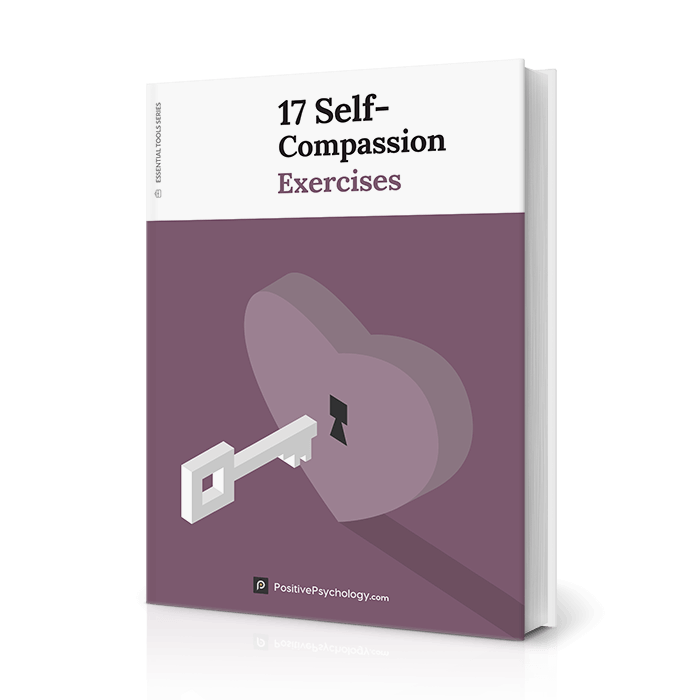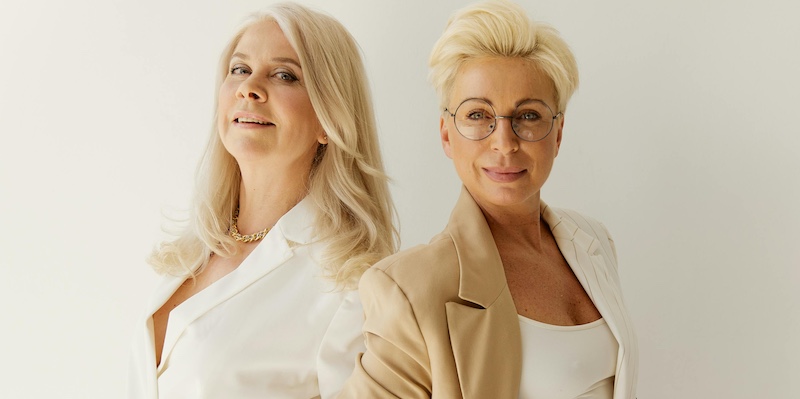7 Most Effective Self-Esteem Tools and Activities
 Your level of self-esteem has to do with how worthwhile you feel.
Your level of self-esteem has to do with how worthwhile you feel.
It’s different from self-confidence, which has more to do with your ability to do something successfully.
Low self-esteem can keep you from enjoying your life. It can also keep you from socializing and maintaining friendships.
Self-esteem is one of those intrinsic qualities that develop slowly over time. Those with low self-esteem might lack certain social skills, lack assertiveness, or even walk into a room with their shoulders slumped. Body language can sometimes be an indicator of how much self-esteem a person genuinely has.
Those who walk into a room with a big smile and a confident, humble demeanor radiate confidence. These are qualities of someone with high self-esteem.
In this article, we will explore what self-esteem is, its origins and roots, as well as some helpful tools and worksheets.
Before you continue, we thought you might like to download our three Self-Compassion Exercises for free. These detailed, science-based exercises will not only help you increase the compassion and kindness you show yourself but will also give you the tools to help your clients, students, or employees show more compassion to themselves.
This Article Contains:
- What Is Self-Esteem Theory?
- How Can Therapy Be Used to Build Self-Esteem?
- A Look at Self-Esteem Interventions
- 8 Examples of Self-Esteem Issues
- Common Questions on the Topic
- 8 Skills and Techniques to Add to Your Arsenal
- How We Can Build Self-Esteem in Kids
- A Self-Esteem Building Activity and Exercise
- Useful Self-Esteem Tool (incl. PDF)
- An Assessment and Questionnaire
- A Take-Home Message
- References
What Is Self-Esteem Theory?
Everyone wants to have high self-esteem, but it is a very complex concept. Self-esteem has to do with your ideas about yourself. Those with low self-esteem often have a more negative view of themselves and their abilities. Certain events in life can also cause your self-esteem to plummet.
Many things, including your upbringing, influence your self-esteem. It is based on how much you value yourself and how confident you feel in your mind. Self-confidence is more about having confidence in your ability to do something successfully.
In a nutshell, self-esteem is all about feeling worthy and having a high opinion of yourself. It influences everything in your life.
William James is thought of as the creator of the self-esteem movement (Hewitt, 2005).
James used a straightforward formula for defining self-esteem:
Self-esteem equals success divided by our pretensions
Pretensions refer to our goals, values, and those things we believe about our potential. If our level of success exceeds our expectations, then we might view ourselves as successful and feel good about ourselves, which raises our self-esteem.
On the other hand, if our achievements are low and our expectations are high, then we may see ourselves as a failure.
Stanley Coopersmith was also a leader in the study of self-esteem. He believed that self-esteem begins early in life in childhood.
Coopersmith also believed that our self-esteem builds up or declines throughout our lives, based on our early childhood experiences, which may be positive or negative.
Morris Rosenberg, a contemporary of Coopersmith, studied the development of self-esteem, focusing on the adolescent years.
Rosenberg believed that self-esteem tended to develop more in the adolescent years, which are uncertain for many. His theory of self-esteem was based upon the idea that during adolescence, we often compare ourselves to others, which causes us to continually evaluate and re-evaluate how others see us and think about us.
Contemporary theories are based on the role self-esteem plays in our lives and our psychological wellbeing.
How Can Therapy Be Used to Build Self-Esteem?
 Self-esteem typically refers to how we think about ourselves.
Self-esteem typically refers to how we think about ourselves.
In essence, it is an aggregate of thoughts as we examine how confident we are.
Those who have low levels of self-esteem often engage in excessive self-criticism. This can result in other psychological disorders such as depression and anxiety.
Therapy, like Cognitive-Behavioral Therapy (CBT), can be an effective treatment for some. CBT is a brief, problem-focused therapy that targets the problems that are occurring in the present moment, as opposed to focusing on the past or childhood memories (Cognitive Behavioral Therapy Los Angeles, n.d.).
CBT is one of the most researched treatment modalities when it comes to helping build self-esteem.
A Look at Self-Esteem Interventions
Dialectical Behavior Therapy, created by Marsha Linehan, can also be very effective for helping to build self-esteem. The FAST acronym (Linehan, 1993) is a useful approach for steps you can take to make daily choices to build your self-esteem. Each of us has many choices throughout the day that we can make to build our self-esteem.
Making healthy choices requires awareness of our actions, followed by making conscious and intentional choices (Optimum Performance Institute, n.d.).
FAST Acronym
F – Be fair to yourself as well as other people. It’s important to learn that your needs are just as important as someone else’s. This is also about being assertive and learning to speak your truth.
A – No apologies. Don’t be overly apologetic. Don’t apologize for having an opinion or disagreeing with others.
S – Stick to your values and don’t compromise or abandon your values trying to please others or conform.
T – Be truthful and don’t make excuses. Be honest and don’t exaggerate or tell little white lies.
Therapies like CBT and Eye Movement Desensitization and Reprocessing can be useful for treating low self-esteem in patients with a wide range of psychiatric disorders in secondary mental healthcare (Griffioen, van der Vegt, de Groot, & de Jongh, 2017).
This particular study examined patients already diagnosed with an Axis I or II disorder, and patients who had low self-esteem.
8 Examples of Self-Esteem Issues
 There are, of course, many issues that are related to self-esteem.
There are, of course, many issues that are related to self-esteem.
Those with low self-esteem often see themselves as failures, and they might also feel sad, angry, or worthless.
According to Webber (2019), low self-esteem can affect everything in your life, from your relationships to your career.
Some common examples of low self-esteem might include:
- Hating yourself or feeling angry or frustrated about who you are
- Being obsessed with being perfect
- Hating your body
- Feeling worthless
- Being overly sensitive
- Feeling anxious and fearful
- Constantly feeling angry
- Trying to be a people pleaser
Those who hate themselves or loathe themselves often feel angry or frustrated about who they are. Self-hate means you have difficulty forgiving yourself for even the smallest things.
To silence that inner critic, you have to start replacing negative thoughts with positive ones. You also have to practice forgiveness and challenge those negative self-beliefs.
Being obsessed with being perfect can also rob you of self-esteem. For those who continuously try to be perfect, it’s essential to set realistic expectations and recognize that failure is something that happens on occasion. It’s not something we are.
Hating your body is another common sign of low self-esteem. Those who hate their bodies constantly compare themselves to others and have a negative body image. This can even keep someone from living a healthy lifestyle. To combat this, it’s crucial to stop the comparison and realize that you and your body are unique.
Those with low self-esteem might also think they bring nothing to life. They may not see themselves as valuable. Taking the time to focus on your talents and abilities can go a long way toward boosting your self-esteem.
Feeling overly sensitive is another common sign of low self-esteem. Learning to desensitize is essential for someone experiencing this. By standing up for yourself and being proactive, it is possible to calm this tendency.
Feeling anxious and fearful or constantly feeling angry are other common traits of low self-esteem. Challenging your anxieties and fears with facts can help combat this.
Try drawing up a fear pyramid by placing your biggest fear or anxiety at the top and your smallest one at the bottom. As you examine this pyramid, you can work your way up, taking on each fear or anxiety as you go.
Being a people pleaser is certainly not conducive to having high self-esteem either. Learning how to say no and taking the time to understand that people like you and love you for who you are can help override this tendency. It’s also important to set limits so that you don’t get taken advantage of by others.
Common Questions on the Topic
One of the most common questions about self-esteem is “How can you tell the difference between self-confidence and self-esteem?”
Self-confidence is about having confidence in your ability to do something. Being self-confident means trusting in yourself and your abilities. Someone who is self-confident can rise to the challenge and seize new opportunities. For example, you can feel confident about your work or your ability as a chef, but still lack self-esteem.
Self-esteem, as we have seen, has to do with your emotional appraisal of your own worth. This feeling can develop over a lifetime, causing a multitude of problems, from bad relationships to feeling belittled by people.
Another common question is “What influences self-esteem?”
There may be many reasons for low self-esteem:
- Age
- Body type
- Gender
- Mental health status
- Race and ethnicity
- Sexual orientation
Research reveals that self-esteem tends to increase from adolescence to middle age. However, it starts to decline again around the age of 60, which may have to do with physical health or financial concerns
Women tend to report lower levels of self-esteem than men, a trend more prevalent in Western cultures.
According to a 2012 study, humor, community involvement, and positive in-group stereotyping were linked to higher levels of self-esteem (Ilic et al., 2012).
Children who are obese or overweight frequently experience bullying and lower levels of self-esteem as well (Danielsen et al., 2012).
Among adolescent students, Asian-Americans tend to have the lowest self-esteem, followed by Hispanics and then whites. African-American students had the highest self-esteem (Bachman, O’Malley, Freedman-Doan, Trzesniewski, & Donnellan, 2011).
Lesbian, gay, bisexual, and/or transgender adolescents also tend to have lower self-esteem brought on by bullying (Russell, Ryan, Toomey, Diaz, & Sanchez, 2011).
8 Skills and Techniques to Add to Your Arsenal
 According to Glen R. Schiraldi (2016), author of The Self-Esteem Workbook, there are some simple steps you can take to help build your self-esteem:
According to Glen R. Schiraldi (2016), author of The Self-Esteem Workbook, there are some simple steps you can take to help build your self-esteem:
- Practice mindfulness
- Change your story
- Don’t compare yourself to others
- Channel that inner rock star
- Move your body more
- Volunteer
- Practice forgiveness
- Realize that you are not your circumstances
These may be simple things, but they can be powerful. Being mindful, for example, can help you learn to live in the present moment and not get caught up in worrying about the future or obsessing about the past. Mindfulness also enables you to stop negative self-talk by helping you be more aware.
You can also change your story and start thinking differently. You don’t have to carry the same old sad story around. Taking the time to examine your story can help you understand it and move beyond it.
Comparing yourself to others is a recipe for disaster. Comparisons only lead to feeling worse about yourself. When you stop comparing yourself, you begin to realize you are unique.
When all else fails, you can channel your inner rock star. Everyone has a strength or talent. No one is good at everything, so taking the time to find your natural talent can help you feel better about yourself.
Exercising can also help you feel better about yourself with the release of your body’s natural endorphins. You might be surprised at how good you feel after a brisk walk.
Doing things like volunteering and practicing forgiveness can also be helpful. Helping others and taking the time to forgive yourself can go a long way to boosting your self-esteem.
Last but certainly not least, it’s important to remember that you are not your circumstances. This too, shall pass.
How We Can Build Self-Esteem in Kids
 It’s important to help our children build self-esteem because having healthy self-esteem in your childhood can help you become a more confident adult.
It’s important to help our children build self-esteem because having healthy self-esteem in your childhood can help you become a more confident adult.
When children feel good about themselves, it paves the way for the future. Children who have low self-esteem may even perform below their full potential in school and make poor decisions (Kids Play and Create, n.d.).
There are many things you can do to help build up a child’s self-esteem:
- Be attentive.
- Make them feel special.
- Help them learn from their mistakes.
- Be a positive role model.
- Try to understand where they are coming from.
Doing simple things like these can go a long way toward boosting a child’s self-esteem. For example, being attentive can be as simple as making eye contact when your child talks to you or simply paying attention and listening attentively. The best thing you can do to help your child feel special is to make sure that what they have to say is important to you.
Praising a child can also help them feel better about themselves. You can praise them when they do a good job or praise them for completing a small task. When you take the time to compliment or honor a child’s effort, it can go a long way to making then feel special.
We all need to learn from our mistakes continually. Try to help your child turn mistakes into learning events. Focus on what they can take away and what they can do better next time. You can even tell them a story about someone famous who made mistakes like Thomas Edison, who failed over and over again in the process of inventing the lightbulb.
One of the best things you can do as an adult is to be a positive role model. Children learn from adults. If you are always putting yourself down, you are not going to be a positive role model because children copy adults’ actions.
Taking the time to tune into a child’s feelings when things aren’t going so well can help your child more than you might imagine.
Have a look at these Self-Esteem Books for informative material to help you increase kids’ self-esteem.
How to build self-esteem – FightMediocrity
A Self-Esteem Building Activity and Exercise
The following list of questions works great as self-esteem building exercises.
15 Questions to help you feel confident now
According to Emily Roberts (2016), there are some questions you can ask yourself to help boost your self-esteem and help you feel confident now.
You can answer these questions quickly or take more time to ponder. The more time you spend thinking about yourself in this manner, the better you will feel. Sometimes we don’t stop to think about those things we already have that define us.
- What are some things you can do to strengthen or balance your emotions? What can you stop doing?
- How would you feel three months from now if you stuck to your goal? How would your life be different?
- What is one small thing you can do this week that will help you feel more in control of your life?
- What are some things you are passionate about? What kinds of things excite, motivate, or interest you? What can you do to feed these passions daily or weekly?
- Think of some times when you felt motivated and confident. What were you doing? Who were you with? Where were you?
- What kinds of things can you do to start developing a stronger relationship with yourself? What kinds of things do you feel you need to overcome so that you can get closer to self-acceptance and confidence?
- Do you have relationship problems with your family, friends, or coworkers? What are your options to overcome them?
- What kinds of activities excite you? Which ones make you feel happy? How can you integrate more joyful and exciting activities into the next couple of days?
- What habits, if any, do you need to change in order to improve your happiness and confidence this year? What is one habit that you can start to work on in the next couple of days? What would it feel like to do this every day?
- What can you start doing, or stop doing, to deepen your relationships with friends and loved ones?
- Who are the people in your life who are supportive and will help you nurture your dreams and goals? How can you spend more time with them?
- What stands between you and feeling happy? What steps can you take to bridge the gap?
- In terms of money and finances, what kinds of changes could you make to feel more confident financially?
- How can you reduce your expenses this month? How would this make you feel about yourself?
- What would it feel like if you stuck to one healthy habit for the next few months? How could that improve your life?
Don’t get stressed if you can’t answer all of the questions. Just complete the ones you feel comfortable answering and revisit the list later. The more you work on these, the more confident you will feel.
Useful Self-Esteem Tool (incl. PDF)
 One useful worksheet that may help examine self-esteem issues is the About Me Worksheet.
One useful worksheet that may help examine self-esteem issues is the About Me Worksheet.
This worksheet helps children learn to focus on and explore their positive traits and accomplishments, as opposed to always focusing on the negative things.
As a result of focusing on the good things, children can build a foundation to help them gain the confidence they need to face their problems and implement new skills.
You can do this activity along with your child to help nudge them in the right direction.
An Assessment and Questionnaire
A simple quiz that you can do for self-esteem involves asking ten simple questions (Mirror Mirror, n.d.).
This self-esteem quiz is not meant to diagnose any psychological disorder but is good for gauging how someone feels about themselves. If you score on the low end, that might mean you need to practice more self-love or self-compassion.
Answer the following questions with “most of the time,” “some of the time,” or “almost never.”
- My feelings get easily hurt.
- I get upset if someone criticizes me, even if they mean well and offer constructive criticism.
- I get angry at myself if I make a small mistake, even if it is an honest one.
- I typically ask other people what they think I should do, instead of making my own decisions.
- I typically go along with the group, even if I don’t necessarily agree.
- I am uncomfortable when accepting compliments.
- I don’t feel like I measure up or feel good enough.
- It’s common for me to self-criticize or say negative things about myself, like telling myself I am stupid, fat, or just no good.
- When I look in the mirror, I don’t like what I see and don’t feel attractive.
- I find myself apologizing for things all of the time, even for things that aren’t my fault.
If you answered “almost never” for most of the questions, you have a healthy self-esteem. Everyone has times when they feel down, but as long as you don’t feel like that every day, you will be fine.
If you answered “most of the time” to many of the questions, you may need to take some additional steps to boost your self-esteem. This doesn’t necessarily mean you are depressed; it just means you may be a little too hard on yourself.
If you answered “some of the time” to many of the questions, you could still benefit from practicing a little self-compassion and self-love.
A Take-Home Message
Everyone suffers from low self-esteem every once in a while. Most people bounce back eventually. Each of us is born with infinite potential and equal worth as human beings. With a little self-compassion and self-love, there are no limits to what we can achieve.
Taking the time to understand the tools that are out there can help you boost your self-esteem when you feel down. Simply taking the time to recognize these times can help you move forward and feel better.
We hope you enjoyed reading this article. Don’t forget to download our three Self Compassion Exercises for free.
- Bachman, J. G., O’Malley, P. M., Freedman-Doan, P., Trzesniewski, K. H., & Donnellan, M. B. (2011). Adolescent self-esteem: Differences by race/ethnicity, gender, and age. Self and Identity, 10(4), 445–473.
- Cognitive-Behavioral Therapy Los Angeles. (n.d.). Build self-esteem. Retrieved from http://cogbtherapy.com/build-self-esteem.
- Danielsen, Y. S., Stormark, K. M., Nordhus, I. H., Mæhle, M., Sand, L., Ekornås, B., & Pallesen, S. (2012). Factors associated with low self-esteem in children with overweight. Obesity Facts, 5(5), 722–733.
- Griffioen, B. T., van der Vegt, A. A., de Groot, I. W., & de Jongh, A. (2017). The effect of EMDR and CBT on low self-esteem in a general psychiatric population: A randomized controlled trial. Frontiers in Psychology, 8, 1910.
- Hewitt, J. P. (2005). The social construction of self-esteem. In C. R. Snyder & S. J. Lopez (Eds.), Handbook of positive psychology (pp. 135–148). Oxford University.
- Ilic, M., Reinecke, J., Bohner, G., Hans-Onno, R., Beblo, T., Driessen, M., … Corrigan, P. W. (2012). Protecting self-esteem from stigma: A test of different strategies for coping with the stigma of mental illness. International Journal of Social Psychiatry, 58(3), 246–257.
- Kids Play and Create. (n.d.). Self-esteem and character building activities for kids. Retrieved from https://www.kidsplayandcreate.com/self-esteem-character-building-activities-for-kids/.
- Linehan, M. (1993). Skills training manual for treating borderline personality disorder. Guilford Press.
- Mirror Mirror. (n.d.). Quiz for self-esteem. Retrieved from https://www.mirror-mirror.org/quiz-for-self-esteem.htm.
- Optimum Performance Institute. (n.d.). Use Dialectical Behavior Therapy (DBT) FAST skills to balance keeping relationships with keeping respect for yourself. Retrieved from https://www.optimumperformanceinstitute.com/dbt-treatment/dbt-fast-skills-explained/
- Roberts, E. (2016, January 15). Feel confident now: Ask yourself these 15 questions. Healthy Place. Retrieved from https://www.healthyplace.com/blogs/buildingselfesteem/2016/01/feel-confident-now-ask-yourself-these-15-questions.
- Russell, S. T., Ryan, C., Toomey, R. B., Diaz, R. M., & Sanchez, J. (2011). Lesbian, gay, bisexual, and transgender adolescent school victimization: Implications for young adult health and adjustment. Journal of School Health, 81(5), 223–230.
- Schiraldi, G. R. (2016). The self-esteem workbook. New Harbinger.
- Webber, C. (2019, September 18). 8 ways to overcome low self-esteem. NetDoctor. Retrieved from https://www.netdoctor.co.uk/healthy-living/wellbeing/a25866/how-to-overcome-low-self-esteem/
Let us know your thoughts
Read other articles by their category
- Body & Brain (49)
- Coaching & Application (57)
- Compassion (26)
- Counseling (51)
- Emotional Intelligence (24)
- Gratitude (18)
- Grief & Bereavement (21)
- Happiness & SWB (40)
- Meaning & Values (26)
- Meditation (20)
- Mindfulness (45)
- Motivation & Goals (45)
- Optimism & Mindset (34)
- Positive CBT (28)
- Positive Communication (20)
- Positive Education (47)
- Positive Emotions (32)
- Positive Leadership (18)
- Positive Parenting (3)
- Positive Psychology (33)
- Positive Workplace (37)
- Productivity (16)
- Relationships (46)
- Resilience & Coping (36)
- Self Awareness (21)
- Self Esteem (37)
- Strengths & Virtues (31)
- Stress & Burnout Prevention (34)
- Theory & Books (46)
- Therapy Exercises (37)
- Types of Therapy (64)






What our readers think
One of the main reasons why my Client’s self-esteem is so low is because of their Criminal history and current state of incarceration. That circumstance seems to produce many of the symptoms identified as signs of low self-esteem. This article was very relevant to where I work and my Client’s needs. Thank you, Grazi!
I do not think the About Me Worksheet for children is good. I would have been very stressed to have had to fill it in as a child, particularly the point ‘my family was very happy with me when I. . .’ There was nothing about me my family was happy with, yet I knew I had to answer the question in a way which made my parents look good, and I had no idea what that answer might be as it was not an area of life I had any experience with. Being proud of myself, or being valued by someone outside the family were also severely punishable offences. Fortunately at that time child therapists were not available. As my parents would have been very angry indeed if a therapist had shown any sign of suggesting they were in the wrong. Though they might have put some effort into finding a therapist who added to the pressure on me to fit in with the conventions of the time. A severely abused child should not have to deal with the pressures of having to answer these questions.
Self esteem is a very challenging concept for many. Including myself. I appreciate the movement you are producing in our world. We need more of it. Please keep going with all of this information. I find it extremely helpful not only for myself but also for the clients I serve.